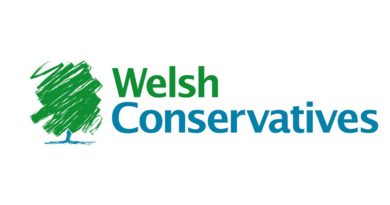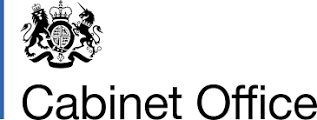Department for International Development – 2019 Press Release on Global Youth SDGs
Below is a press release issued by the Department for International Development on 21/11/2019.
Head of DFID Ghana Philip Smith delivered a speech on “Bridging the Inclusion Gap with the Disabled” at the SDGs Global Summit in Accra on 21 November.
Minister of Health – Honourable Kwaku Agyeman-Manu, Minister of Gender, Children & Social Protection – Honourable Cynthia Morrison M, Minister of Planning – Honourable George Gyan-Baffour, distinguished panelists, ladies and gentlemen,
It’s a pleasure to join you today at this Global Youth SDGs Summit to deliver a few brief remarks to open this important panel discussion on ‘Bridging the Inclusion Gap with the Disabled’.
We know that globally more than one billion people are living with disabilities – 80% of whom live in developing countries.
These are some of the most excluded people in the world, often locked out of education, jobs, and overlooked by decision-makers.
The World Health Organization estimates the disability rate of Ghana to be between 7 and 10 per cent.
As a longstanding friend of Ghana, the UK welcomes the government’s focus on achieving the Sustainable Development Goals.
People with disabilities are at the heart of the SDGs’ overarching call to ‘leave no one behind’.
We also applaud His Excellency the President’s vision for a self-reliant Ghana.
Disability inclusion is critical to that ambition. When 10% of the population is unable to achieve their potential, when they are prevented from being productive, or when their voices are simply not heard, there can be no sustainable path to development.
And “bridging the inclusion gap”, the topic of today’s panel, is a global challenge for us all. In the UK, in Ghana, and across the globe, we have made far too little progress in tackling the root causes of the stigma, discrimination and abuse that hold people with disabilities back.
In Ghana, as in other countries, a large majority of persons with disabilities in Ghana are either not employed, under-employed or earn lower wages than people without disabilities. Gender inequality furthers that divide.
However, there is growing recognition of the importance of ensuring that people with disabilities are integrated into socioeconomic development efforts.
And I am heartened to see many champions in this room and on the panel leading the wave of change here in Ghana.
Last year, the UK hosted the first ever Global Disability Summit in London. We set the bar high, not just for ourselves – but for all development agencies and governments.
The Global Disability Summit was an expression of a new momentum towards disability inclusion resulting in 320 organisations and governments, including the government of Ghana, making important commitments and signing up to the Charter for Change – to drive implementation of the UN Convention on the Rights of Persons with Disabilities.
The government of Ghana’s eight commitments, made at the Summit, provide a significant opportunity to drive forward increased investment and action in tackling stigma and discrimination, improving data and fundamentally in ensuring better inclusion of disabled people, particularly women and girls, in education, in economic empowerment and in technology and innovation.
The UK is committed to supporting Ghana to achieve these commitments, building on the work we have been doing over the last ten years across the country to support mental health.
Over the next few years, DFID support to disability inclusion will focus on three areas:
Firstly, supporting government to strengthen policies and strategies that address chronic poverty, disability, poor mental health and wider exclusion. This will include a specific focus on promoting community-based care and supporting long-term reforms to de-institutionalise people with disabilities/mental health conditions from hospitals, prayer camps and other institutions.
Secondly, the UK will support government to scale up social services – including cash transfers to the poorest households- with a new focus on jobs and skills. We will support Ministry of Health to integrate quality mental health services through primary health care at scale. We will provide technical support to ensure better use of disaggregated data by disability status and support government to mainstream gender across its programmes.
And thirdly, we will support the efforts of civil society, disability persons organisations and self-help groups to address stigma, discrimination and human rights violations to support Ghana’s efforts to transform attitudes and behaviours that drive social exclusion.
Ladies and gentlemen,
We congratulate the government of Ghana in its foresight in making disability inclusion and mental health key priorities.
Backing these commitments with sufficient resourcing and appropriate legislation will be the key to affecting real change.
I’d also like to take this opportunity to applaud the Ministry of Gender on the recent inauguration of the Disability Technical Committee to facilitate the consultation process for the review of the Disability Act and Legislative Instrument to comply with the UN Convention.
We call on the government to go further still beyond policy commitments to champion disability inclusion – to improve access to services, making sure that these are integrated into general health services and are closer to communities; and to make them free at the point of use to those that need them.
As Ghana continues to make progress towards self-reliance, we look forward to growing the partnership between our two countries – ensuring that persons with disabilities and mental health conditions, especially the poorest and most marginalized, will have access to the care they need and can contribute to their communities.
In closing let me say that,
Today we are at a point of decision and opportunity, where in the 11 remaining years of the Sustainable Development Goals, we still have time to realise their full ambition to address the root causes of poverty and inequality and achieve development that works for all people.
Next week, we mark the International Day for Persons with Disability on 3rd December. This year’s theme is ‘Promoting the participation of Persons with Disabilities and their Leadership”.
As Young Ghanaians, we urge you all to join this call to action for disability-inclusive leadership.
As Ghana’s future, you all have a critical role to play in the global effort to reduce stigma against people with disabilities, to respect their dignity and rights and, in so doing, to create a better world for us all.
Thank you.



